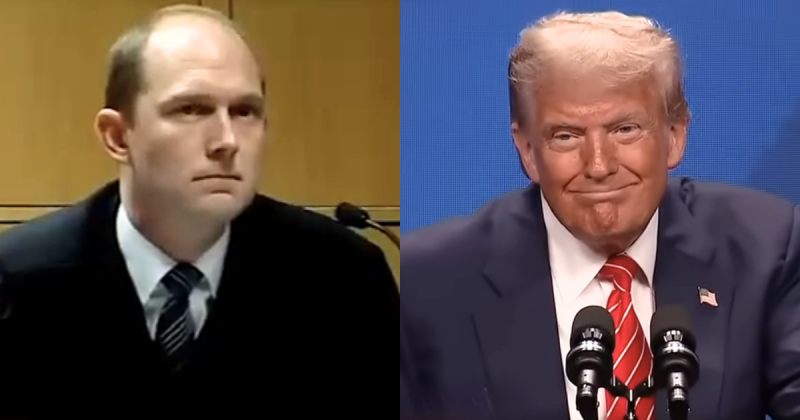President Donald Trump gained a partial victory Friday in Georgia’s sprawling election case after a judge dismissed multiple charges against him and several co-defendants.
Trump has repeatedly called the prosecution a political “witch hunt,” and Friday’s ruling marks the latest development in a case slowed by leadership changes, procedural delays, and concerns over impartiality.
The ruling came as Fulton County Superior Court Judge Scott McAfee ordered counts 14, 15 and 27 removed from the indictment.
These counts involved allegations that defendants submitted false documents or attempted to file inaccurate statements after the 2020 election.
Two additional counts had already been dismissed in September, gradually narrowing the charges while leaving the majority of the indictment intact.
Legal experts note that the removed counts focused on documents tied to alternate elector efforts and filings with state authorities.
The case’s progress had previously been complicated by the removal of Fulton County District Attorney Fani Willis.
McAfee determined that her romantic involvement with former special prosecutor Nathan Wade created a “significant appearance of impropriety,” leading to the disqualification of Willis and her office.
The judge cautioned that without a replacement, the prosecution risked stalling entirely, potentially undermining months of investigation, Just the News reports.
To maintain continuity, the nonpartisan Prosecuting Attorneys’ Council of Georgia appointed executive director Pete Skandalakis to oversee the case.
Skandalakis pledged to manage the proceedings “properly, fairly, and with full transparency” and to act “without fear, favor, or affection,” signaling that the prosecution would continue despite recent upheaval.
His appointment ensures that deadlines will be met and that the state’s efforts to pursue the remaining charges remain on track.
Despite the dismissal of three counts, Trump still faces multiple charges, including a racketeering allegation under Georgia’s RICO statute, according to Newsweek.
Officials allege that he and his associates attempted to overturn Georgia’s certified 2020 election results, with several co-defendants—including Rudy Giuliani and senior campaign advisers—implicated in the effort.
Prosecutors contend that the charges reflect a coordinated attempt to manipulate state election outcomes in violation of Georgia law.
The original indictment, filed in August 2023, names 18 other individuals alongside the president. Charges range from election interference to conspiracy involving falsified documents.
Trump has consistently denied any wrongdoing, calling the investigation politically motivated and questioning the impartiality of prosecutors involved.
Legal analysts point out that prosecutions against a sitting president are constrained by federal and state legal protections, but the 14 remaining co-defendants without presidential immunity could still face active proceedings.
McAfee also rejected broader constitutional challenges, including claims citing the U.S. Constitution’s Supremacy Clause, leaving 32 charges still in effect and signaling that the core of the case remains intact.
Trump’s legal team reacted promptly.
Attorney Steve Sadow said, “This politically charged prosecution has to come to an end. We remain confident that a fair and impartial review will lead to a dismissal of the case against President Trump.”
Sadow’s statement underscores the defense’s continued argument that the prosecution is motivated by partisan politics rather than law.
The developments follow Trump’s recent presidential pardon for individuals accused of participating in alternate elector activities after the 2020 election.
Skandalakis clarified that the pardon does not apply to state-level charges, indicating that the Georgia prosecution will proceed.
A status hearing is scheduled for early December, allowing the new prosecutor time to review the remaining counts, assess evidence, and plan next steps in the case.
While Friday’s ruling provides a partial win for Trump, the broader case continues to draw national attention.
Legal observers say the outcome could shape ongoing debates about election integrity, prosecutorial discretion and the limits of presidential immunity in state-level prosecutions.
The case is expected to remain a closely watched legal and political story for months to come.

